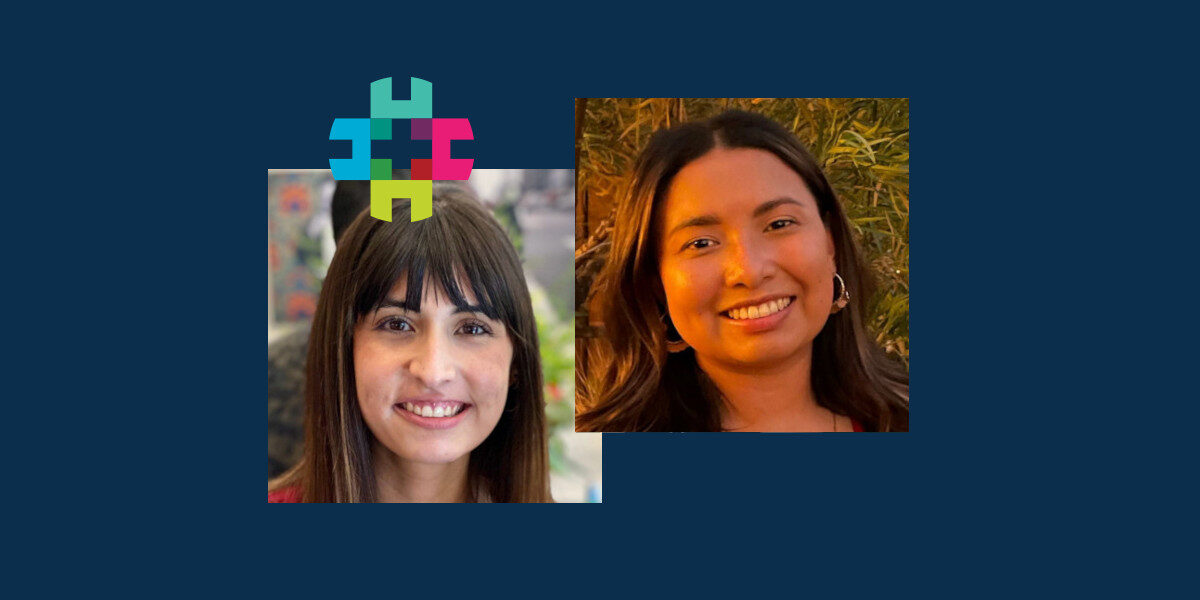

Thank You John Jordan Foundation! Grants for Bilingual Mental Health Professionals
We are pleased and grateful to acknowledge two recent grants funded by the John Jordan Foundation to support newly practicing clinicians from our Mental Health Talent Pipeline.
We are pleased and grateful to acknowledge two recent grants funded by the John Jordan Foundation to support newly practicing clinicians from our Mental Health Talent Pipeline.
Strengthening the Mental Health Talent Pipeline (MHTP)—which provides full scholarships to local bilingual and bicultural graduate students in counseling psychology—and increasing the number of bilingual, bicultural mental health professionals serving northern Sonoma County means increasing the number of traineeships and full-time jobs available. Over the last two years (2021 and 2022), the John Jordan Foundation has provided vital funding to do just that: two grants totaling $90,000 have resulted in two new traineeships that have become permanent positions for therapists.
One of these new positions is at the Cloverdale Unified School System through Support Our Students Community Counseling (SOS); the other is at Corazón Healdsburg through Side by Side.
On Campus at Cloverdale Unified
At Cloverdale Unified, Catalina Frausto is SOS’s first bilingual school-based therapist serving students and their families on campus. Catalina, an MHTP scholarship recipient who graduated in May from USF Santa Rosa, is a Sonoma County native and the first in her family to go to college and to pursue an advanced degree. Thanks to the support of the John Jordan Foundation, Catalina spent her third and final year in the program as a bilingual trainee with SOS, established in 1993 to support the mental health and well-being of Sonoma County youth. Her position is now a permanent one, thanks in part to the John Jordan Foundation support.
“As mental health providers, it is our responsibility to ensure that all communities Side by Side serves have access to equitable treatment, and this means not only building relationships and authentic connections with the youth and families we work with, but also hiring diverse mental health providers with varied cultural values, language skills, and life experiences.”
Denisse Mendoza, Program Director, Side by Side
“When you’re able to have an individual like Catalina on a school site, you open up the possibilities for those youths in ways that they would not get Monday through Friday evening or on weekends. That’s just a fact,” says Becky Ennis, executive director of SOS.
“As an agency with the mission to provide quality mental health services for everyone, we have to take extra measures to meet people where they’re at, where they’re available. And with the youth, it makes sense: you want to be at school.
“There is definitely a lot of potential to continue to grow that particular program that Catalina has really pioneered. She has really been a trailblazer. As an agency, we’ve been in Cloverdale for many years. But Catalina is our first bilingual clinician in Cloverdale. It’s really been a game-changer to have her on that site being able to provide services in a way that we have not been able to offer prior.”
On Site at Corazón Healdsburg
Cesia Jovel, along with Catalina, is a member of a cohort of six MHTP students who graduated in May from USF Santa Rosa. Cesia spent her practicum year as a bilingual trainee in the Santa Rosa offices of Side by Side, which serves young people impacted by adversity with a diverse range of programs. Now she continues in the role as a therapist holding her master’s in Marriage and Family Therapy.
“The work Cesia is doing is invaluable,” explains Denisse Mendoza, Side by Side’s program director. “As a clinician, she is working with youth and families that are struggling with mental health issues, family and systemic issues, trauma, depression, anxiety and so many other challenges. When youth and families are struggling, knowing that even one person really cares can make all the difference in how they face getting through the day.
“Cesia is out there doing that work, building connections and relationships with the youth and families she is working with. She provides support and services so that youth can learn tangible tools and techniques to battle their mental health symptoms, become self-aware, and take active steps each day toward cultivating wellness.
“Realizing that you have to move upstream to be able to help people and not just pull them out of the river as they’re floating by…You can only do that with more therapists and more people who want to get into this field—and feel like they can because there’s money there to do so.”
Becky Ennis, Executive Director, SOS Community Counseling
“Our agency as a whole understands the importance of coming together to serve youth and families in a collaborative and holistic approach,” continues Mendoza. “Within some communities, there is a strong mental health stigma and a tendency to downplay the need for mental health services. A lack of diversity in mental health providers and language gaps both exacerbate that stigma.
“As mental health providers, it is our responsibility to ensure that all communities Side by Side serves have access to equitable treatment, and this means not only building relationships and authentic connections with the youth and families we work with, but also hiring diverse mental health providers with varied cultural values, language skills, and life experiences. As a bicultural, bilingual clinician, Cesia is able to connect with the families and youth in their native language and provide culturally responsive care.”
Local Impact Now
Becky Ennis adds that investing in the education and placement of therapists is a recognized critical need across California and that northern Sonoma County is ahead of the curve in addressing it.
“What the John Jordan Foundation is doing is something that the state is ultimately hoping to do [statewide, through legislation currently being developed by State Superintendent of Public Instruction Tony Thurmond and others], and I’m hoping they’ll be successful,” she says. “But as we all know those wheels turn very slowly. Let’s say all ideal things happen and this [state] program comes to fruition and money moves into this arena to support people to go to school—we’ll see the results of that state funding maybe ten years down the line. John Jordan Foundation is doing it today.
“That speaks to forward thinking,” says Ennis, “paying it forward, investing in the future, and realizing that you have to move upstream to be able to help people and not just pull them out of the river as they’re floating by and drowning. Let’s not even let them fall; let’s go ahead and catch them before that happens. You can only do that with more therapists and more people who want to get into this field—and feel like they can because there’s money there to do so.”
The Healthcare Foundation is focused on providing northern Sonoma County with access to quality healthcare and mental healthcare, regardless of race, ethnicity, age, income, or health status. A key strategy in this effort is to support education, and to strengthen and diversify the workforce of medical and mental health professionals. We are deeply grateful to have the John Jordan Foundation as a partner with us in building the pipeline of bilingual and bicultural mental health professionals in our area and making a powerful investment in community mental health.

Related News + Stories
Invest in Our Community
Your support is vital to our collective vision of eliminating health inequities in northern Sonoma County.
Donate



